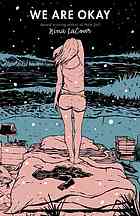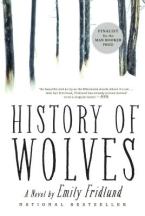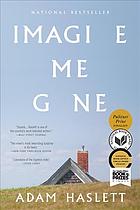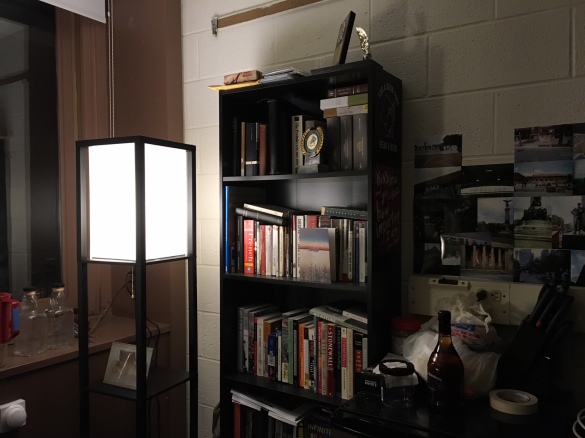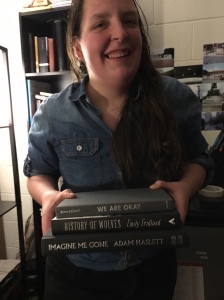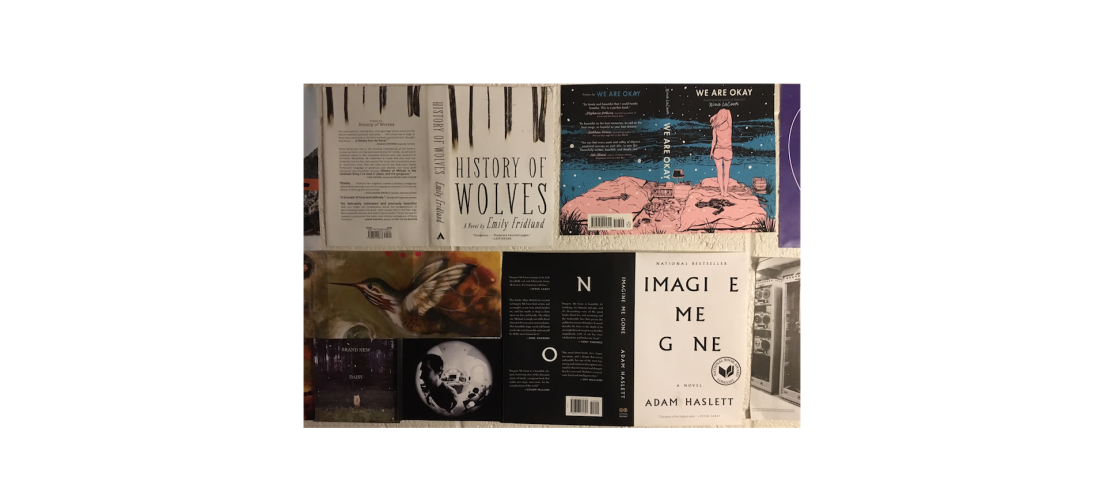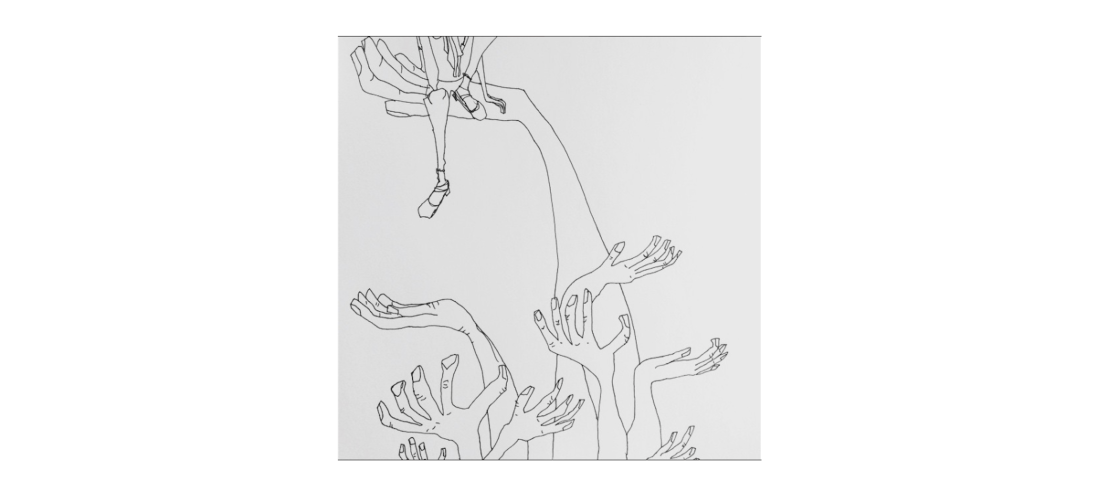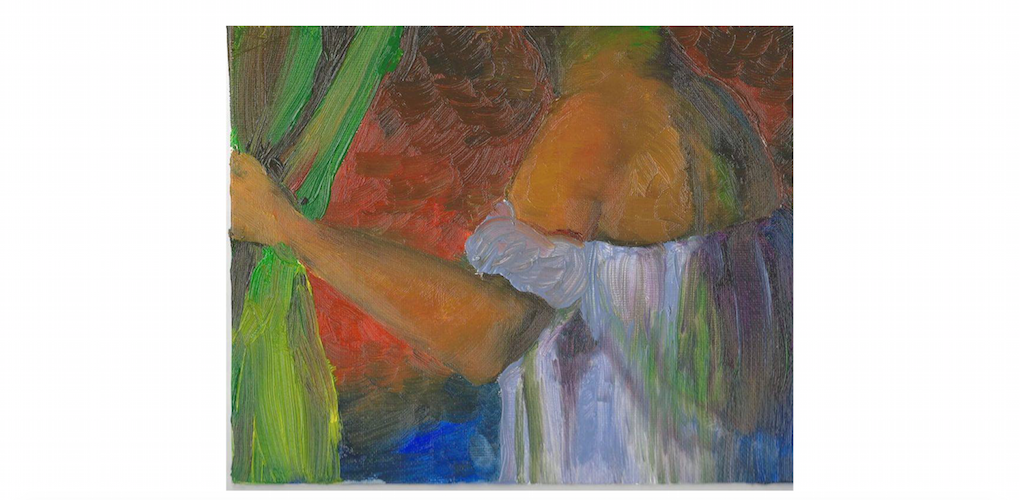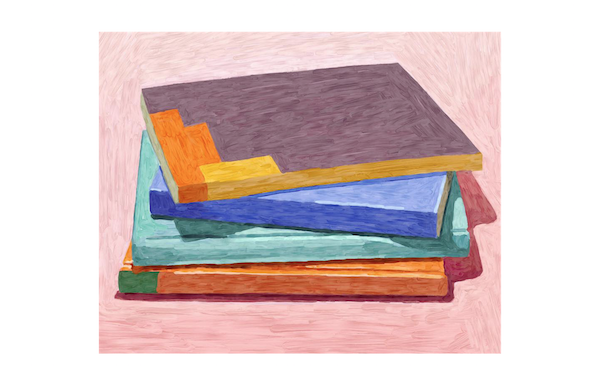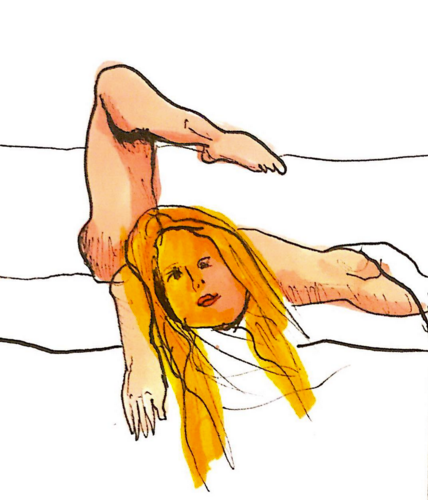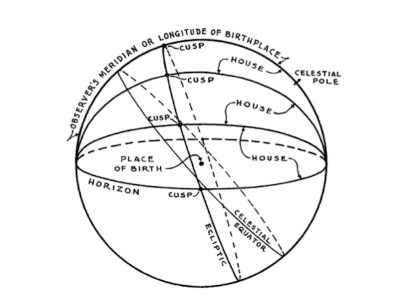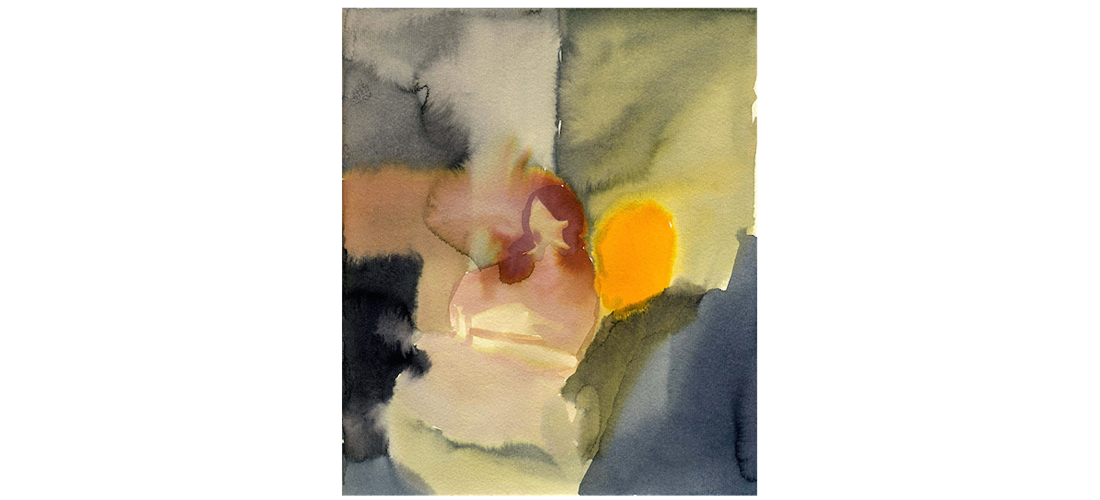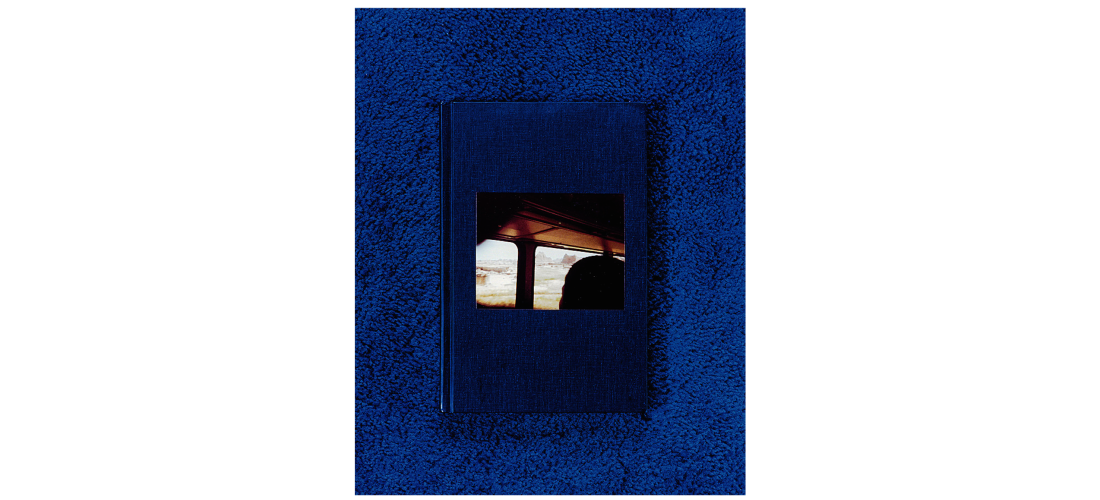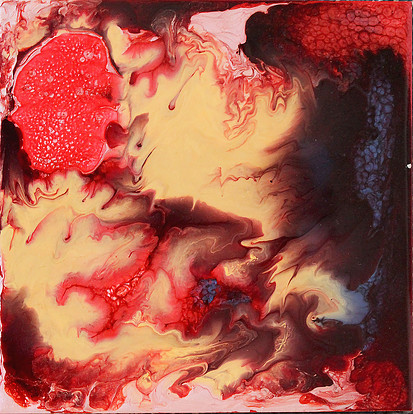By Gabby Arias ’17
Image: “Untitled,” by Tessa Houstoun ’17
An introduction to Gabby Arias’s creative thesis, “La Gringa,” followed by a selected chapter entitled, “Jackson Heights.”
My earliest childhood memories are painted with red and yellow hues, warmth found in the heaping bowls of sancocho arduously prepared by my grandma Dora, or from the stories Ceci told me of my father. From the ages of five to ten, I relished in the tale of how my parents first met in college, a tale that I asked my mother to recite each night before bed. Once I hit puberty in middle school, I begged my relatives to tell me stories “de la finca,” of the days spent on the farm or in the Colombian countryside. Even now, as I complete my undergraduate thesis project, I still call my parents on most weekends and ask them to tell me stories of their grade school days and immigration to America. As I listen to their stories, I catalogue them carefully in the Rolodex of my memory, along with the sancochos, los días en la finca, and my parent’s first date, and they, too, are painted with warm hues each time I retell them.
But most recently, during a visit to my parents’ home, I resisted my natural urge to probe my parents on their past. Instead, I told my dad that I wanted to do a mail-order DNA test, the one that traces our ancestral heritage and claims that, “You might find roots in unexpected places.” I was enticed by the prospect of knowing where my heritage lay, and I ran various scenarios in my head as I fantasized about the results: I would find out where my Spanish colonizers came from, instating the Arias name upon my family; I would realize that, after some suspicion from my mother’s side of the family, I was in fact part Sephardic Jew, one of the few descendants of the minority that inhabited my mother’s hometown of Jerichó. And I would pertain to something bigger than myself. I would be a part of the hundreds of years of history that were never told to me and I would even have scientific evidence of my belonging—of my part in that history—and it would be written in paper, and then filed away, too. It would be permanent.
Just the thought of it—of the envelope containing the results in my hand, of the missing pieces, the answer I was lacking all the times someone asked me “so what are you, like, Italian?”—it quickened my pulse and turned my cheeks a beaming red.
The first time I wrote a personal essay, I titled it, “La Gringa.”[1] It was for my junior year AP English Language course, and the assignment was to model it after a selection of essays that we’d read in class from a larger anthology of published works. We read E.B. White’s “To the Lake,” and Lars Eighner’s “On Dumpster Diving,” but among them, I came across Gloria Anzaldúa’s “How To Tame a Wild Tongue.” After reading it, something clicked. I wrote for four days straight, thinking about the ways in which the Spanish language does or doesn’t affect my life, about the shame of being a Latina whose Spanish isn’t “good.” I got an A+ on that essay—the only grade above a B that I’d received in any English class. “La Gringa” became the essay that I sent along with my college applications once senior year came around, and it became the essay that my mother would hang on the refrigerator door. “When did my baby become a little writer?” my mom asked.
But once high school passed, I rarely thought about revisiting the essay. My academic journey in college revolved around “the greats,”—permanent fixtures like The Odyssey or On the Genealogy of Morals, and others written by white men who had long since died. The European canon had little room for me or for stories de la finca, and so when I began taking creative writing classes on a whim my junior year, I found solace in my abandonment of Homer and Nietzsche and instead revisited the same questions I asked myself in high school. I wrote about my parents’ college years and the greatest love story I’d ever known, of my mother’s first days in America, of frijoladas—and I told my family’s stories because the more that I told them, the more I thought they became my own. They, too, were made permanent.
But as I think back on those essays now, perhaps that was the issue—that I’d only really written about my family’s stories in the hopes that I’d have some part in them, that somehow I’d become a character in their tales of love and immigration. And so as I write this, I am in search of the reds and the yellows in my story, of the times when my Spanish wasn’t “good,” or when I couldn’t dance to cumbia, and of the heaping bowls of sancocho. I am in search of my Latinidad or even the times I felt it failed me. It seems only fitting that this project be titled, “La Gringa.” No matter how hard I resist the label, it encompasses how I feel in most settings—American with just a trace of Latina.
[1] The word gringo is a Spanish word for someone who isn’t Latino, and is mostly used in reference to Americans.
“Jackson Heights”
My mother is five foot two, and she walks with purpose. It’s only nine in the morning, but she already speeds past me as we board the subway in Brooklyn.
“We take the G, then transfer to the seven, right, sweetie?” she asks, as I nervously pull up a subway map on my phone. She brushes her graying hair away from her forehead and tucks the strands behind her ears as her face hovers over my hands.
“Uh, I dunno, Mom. I don’t ever really go to Queens.”
She disregards my response and grabs my arm, as we plunge forward and into the subway car until we transfer to a Flushing-bound seven train in Long Island City. As we ride the subway, my mother shifts her weight with ease, moving her body with the ebb and flow of the rustling car as I anxiously clutch onto a pole in the center. The train conductor announces, “82nd street, Jackson Heights,” and my mom suddenly disappears. On the other side of the platform she yells, “Gabby, this is us!” I dart out of the car, barely making it past the closing doors. My eyes widen in annoyance, but my mother flashes me her goofy smile—the one where her tongue sticks out beneath her two front teeth and her nose shrivels upwards, the one she always puts on in hopes of dispersing whatever irritation is directed her way.
As we descend from the subway entrance and onto the street, the darkness of the subway tunnel quickly dissolves, and I trail behind my mother as she makes her way past the busy intersection of 82nd Street and Broadway. On the corner of the street, there is a woman reciting bible verses in Spanish. I can tell that she has been there for some while, and as she performs each verse, her voice grows stronger, her mouth opening wider as she spits out each word. But the earthquaking rumble of the subway overhead quickly drowns out the woman’s voice. I try to keep up with my mother, but she continues unfazed and crosses the street during a green light. “Ya casi llegamos, mi vida,” she assures me, as the July sun penetrates my skin. I nod my head, and we turn south towards 45th Avenue. Earlier that morning, my mother revealed that she hadn’t been back in Jackson Heights since 1992, but she carries her body with ease as she navigates the same streets she walked along back then. She doesn’t stop to look at a map or ask for directions. She just goes.
Across from us, there is a man with a raspy voice screaming, “agua fría, agua fría, refresca su vida!” as he barrels a cooler filled with water bottles behind him. I chuckle at the wittiness of his sales pitch, but am quickly distracted by the aroma of the fresh, homemade tamales being sold by Mexican women on the sidewalk. One woman calls out, “Tamales, horchata!” while the other woman carefully wraps the tamales in tinfoil and pours the horchata into Styrofoam cups. The two of them stand underneath two colorful beach umbrellas that they attached to their make-shift counters—shopping carts taken from the grocery store two blocks north—in order to protect them from the heat. The pedestrians that fill the streets line up behind one another to buy breakfast from these women, while the halal and hotdog carts down the block are left deserted. I assume that the customers in line are regulars who visit the tamale stand each morning—that they have families, and work hard—and they don’t stare at the huge vats of corn-husk wrapped tamales in awe the way I do. My mother glances at me, stretches her lips into a smile in an endearing way, and says, “We can come back after breakfast and buy one for the road if you want, baby.” I turn my face towards hers and smile back.
“Thanks Momma.”
My mother and I continue down the street a few feet more until she stops abruptly. She bites the inside of her cheeks and scrunches her lips before letting out, “Yes, I think this is the bakery I used to go to. Mhm,” and upon entering she proudly exclaims, “Yup, I was right! I was right.”
We approach the counter and a woman with bleach-blonde hair sings out, “Buenas, chicas, que les puedo dar?”
My mother makes her way down the display cases that exhibit the Colombian pastries—empanadas, pan de yucas, pan de bonos, and more—and responds, “Me das una arepa de chocolo, un bueñuelo, y una empanada, por favor.” As my mother recites her order, I stand back in silence and observe the inside of the bakery. The woman at the counter looks familiar, though I know we’ve never met before. Her makeup is heavily caked onto her face, painted on in the hopes of preserving her youth, though its effect is far from subtle, begging the question of whether or not she’s twenty years older or younger than she looks. She reminds me of the other women that dotted my memories of bakery runs in the Colombian section of Elizabeth, a more urban town not too far from the home I grew up in. She wears the same light-wash jeans that look almost spray-painted on. Her hair is box-dyed some blatantly unnatural color like the other women, and she wears the same caked-on makeup.
But as this particular woman behind the counter places our items in a toaster oven, my mother assures me that she remembers her. “She used to be here when I was a little girl. She must be the owner or something. Wow, I can’t believe she’s still here!” she whispers to me. I roll my eyes at her, sure that this can’t be true.
“She kinda looks like she’s too young, Mom. There’s no way she’s been here, at this same bakery, since you moved here in 1972.”
My mother ignores me. “Perdón, desde cuando trabajas aquí?” she asks. The woman laughs and explains that she’s been working at the bakery for too long.
My mother smiles back at me, this time not in her goofy, don’t-you-love-me way, but in her I-was-fucking-right way. “Si, claro. Me recuerdo de cuando trabajabas aquí. Usted se recuerda de Dora Pelaez?” she continues. I roll my eyes at my mother’s incessant questions making sure not to grab her attention—scoffing at my mother would be rude to begin with, but to question her authority over or sense of belonging in these parts of town would be of the utmost disrespect.
The woman behind the counter explains that throughout the years too many people have come through—too many people for her to remember any individual clearly.
My mother nods, her face pointing downwards, and she presses her lips into a half-smile. “Too bad,” she tells me. As we wait for our breakfast pastries to finish toasting, we head towards the back and find two empty bar stools nestled in the corner by the old advertisements that cover the back wall. “She must remember Grandma,” my mother continues.
“Come on, Mom. Not again,” I tell her.
Moments later, the woman calls out our order and then suddenly exclaims, “Dorita! Dorita Pelaez! Claro que sí, me recuerdo.” She continues to explain how, in those days, people only knew her as Dorita, but that everyone knew her in one way or another. The woman asks if my grandma is still in New York these days.
“No, está en Colombia. Ella vive en Jerichó,” my mother responds excitedly, as the two women exchange memories of my grandmother—her iconic, long red nails, and the church sermons my grandmother would lead. The line of customers quickly piles up as they continue their conversation, the heat of their bodies inundating the tiny bakery on an already hot summer’s day, and eventually, the woman excuses herself, explaining that she has to help the other customers. She asks us to tell my grandmother that she sends her regards.
My mother and I grab our plates and head towards our reserved bar stools, and we share our pastries in the back of the crowded bakery. The bakers in the kitchen behind us blast out Cumbia on the stereo, and I nod my head along to the beat of the music. My mother asks me if I like this type of music, and I say, “sure,” though I don’t really hear that type of music much except for when we enter bakeries like this or when we visit family back in Colombia. I laugh as I continue to explain that I’m happy we’re sitting, because I wouldn’t know how to dance along to the beat it if I had to. My mother chuckles as she assures me, “It’s okay baby, that’s not your fault.” She continues eating her empanada, and my mind lingers on that word—fault.
